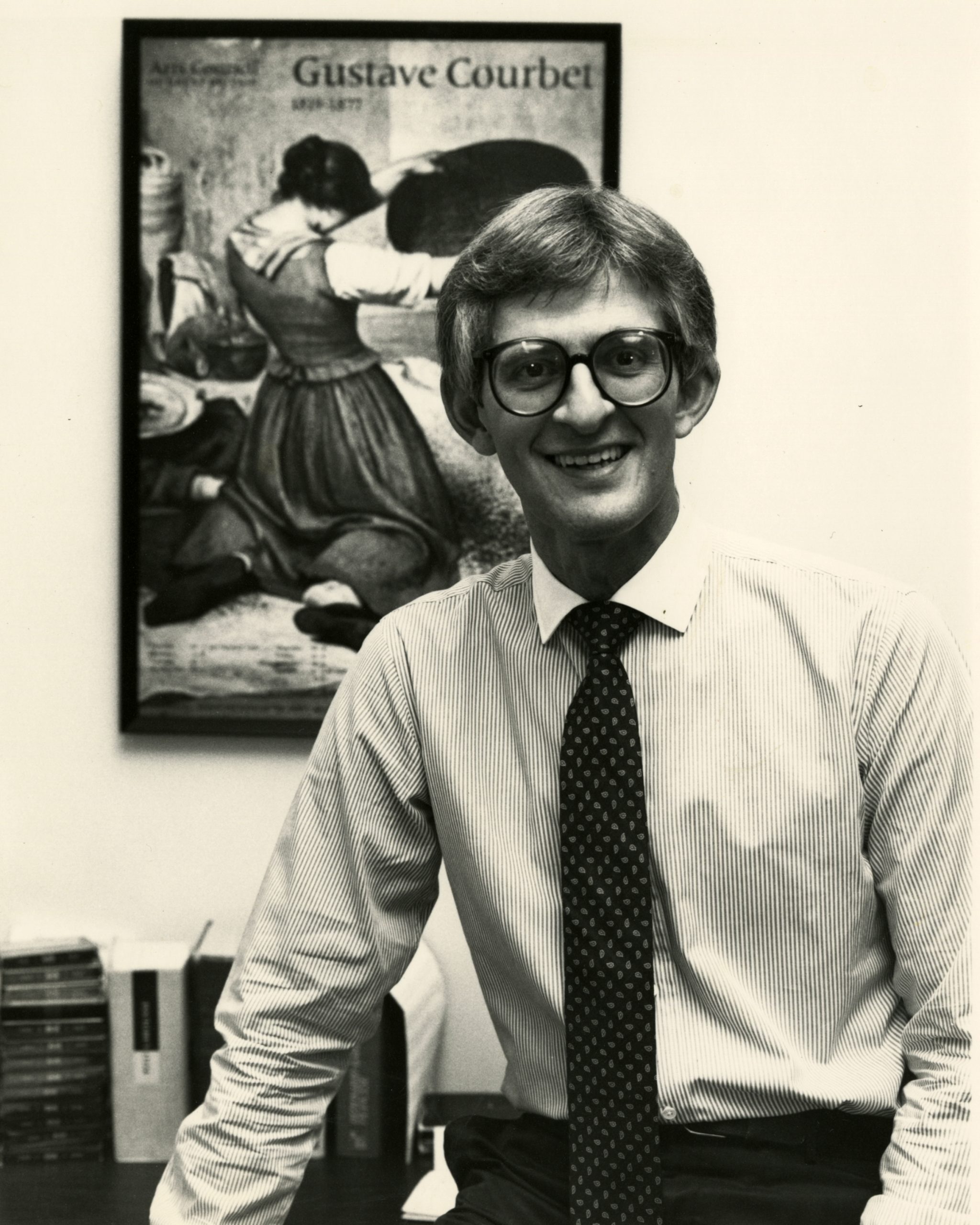The Edgar M. Carlson Award for Innovative Teaching was established by the Board of Trustees of Gustavus Adolphus College to honor Dr. Edgar Carlson for his years of distinguished leadership as president and in recognition of his commitment to academic excellence. Each year, as a result of a nomination process involving faculty, students and administrators, the award, in the amount of $1,500, is presented to a member of the Gustavus faculty in recognition of effective and innovative teaching.
Will Michael Maione please stand and come up here?
Michael, you may find as others have that being singled out as an effective and innovative teacher is somewhat disconcerting. Although each teacher is unique, the qualities of excellent teaching are widely, if variously, distributed among many. To ease you and inform this assembly about why you have been selected to receive the 1980 award, I hasten to explain why this choice is so interesting.
Dr. Maione teaches French in the Department of Foreign Languages. So what is interesting about that? The study of foreign languages is not required at Gustavus, yet the enrollment has been growing. I think I have a clue as to why this is so. During the past year it has been one of my duties to observe and hear three young members of the department teach beginning students. It turned out to be a delight. The experience was so interesting that I wanted to join in the fun and begin the study of languages again. Michael Maione was one of those teachers, and I declare to you that he has made the study of language a lively art, and he dwells among colleagues who inspire him by their own experience and skills.
In terms of years of service Michael is the youngest person to receive the award since it was started in 1971. He still is, for the time being, among the ranks of assistant professors. He has yet to enjoy his newly-acquired tenure status. What makes his selection interesting? Although a relative newcomer to the faculty he has evoked praise from a wide spectrum of faculty and students. We are impressed by his superb academic record, his effectiveness as a teacher, his contributions to the international education program. His adventures in learning continue, whether it be to master Italian or cooking. Thus he increases the depth and range of the various cultural riches he conveys to students and friends. One of his colleagues said, “To know Michael is to encounter rich culture.”
I was not fishing for opinions some days ago when I heard a student say, when Michael Maione’s name was mentioned, “Being in a class with him is like dancing.” Like dancing? Dancing?
I could not dismiss the image. It seems so fitting to describe what I heard and saw in his classroom. The teaching had rhythm and structure, changes of pace and sudden pirouettes, choruses and solos, gestures of reaching toward and receiving in. The image fits not just the body language, although that was vivid, expressive and energetic. It also describes the movement of words between instructor and students.
As dancing stretches the muscles into movements of beauty, so Michael’s teaching draws out the student’s latent skills. One of his students said, “I brought prior skills to this man, but he was not satisfied with them. I had to grow and then grow again, but I learned with, not merely from, him.”
Another student described the skillful combination of familiar methods into fresh juxtapositions that kept every minute a potential surprise. He praised the felicitous combination of formal and tough discipline and spontaneous, humorous openness. There is room in his teaching – room allowed for the unexpected, for creative responses even to mistakes that turn errors into illuminations that foster growing competence rather than regrets for failure.
There is something very interesting about a teacher who prompts a student to think of teaching and learning the basic elements of a foreign language as an art form -a dancing, an aesthetic joy, a creation!
Michael, I speak for my colleagues and your students when I say we are happy that you are among us and that this college is the sort of setting where persons like you have the freedom to choreograph new and fresh and creative instances of learning. I am especially pleased to present you with the Edgar M. Carlson Award for 1980.
Presented by Robert Esbjornson
Professor of Religion
1979 Recipient of the Edgar M. Carlson Award

Leave a Reply